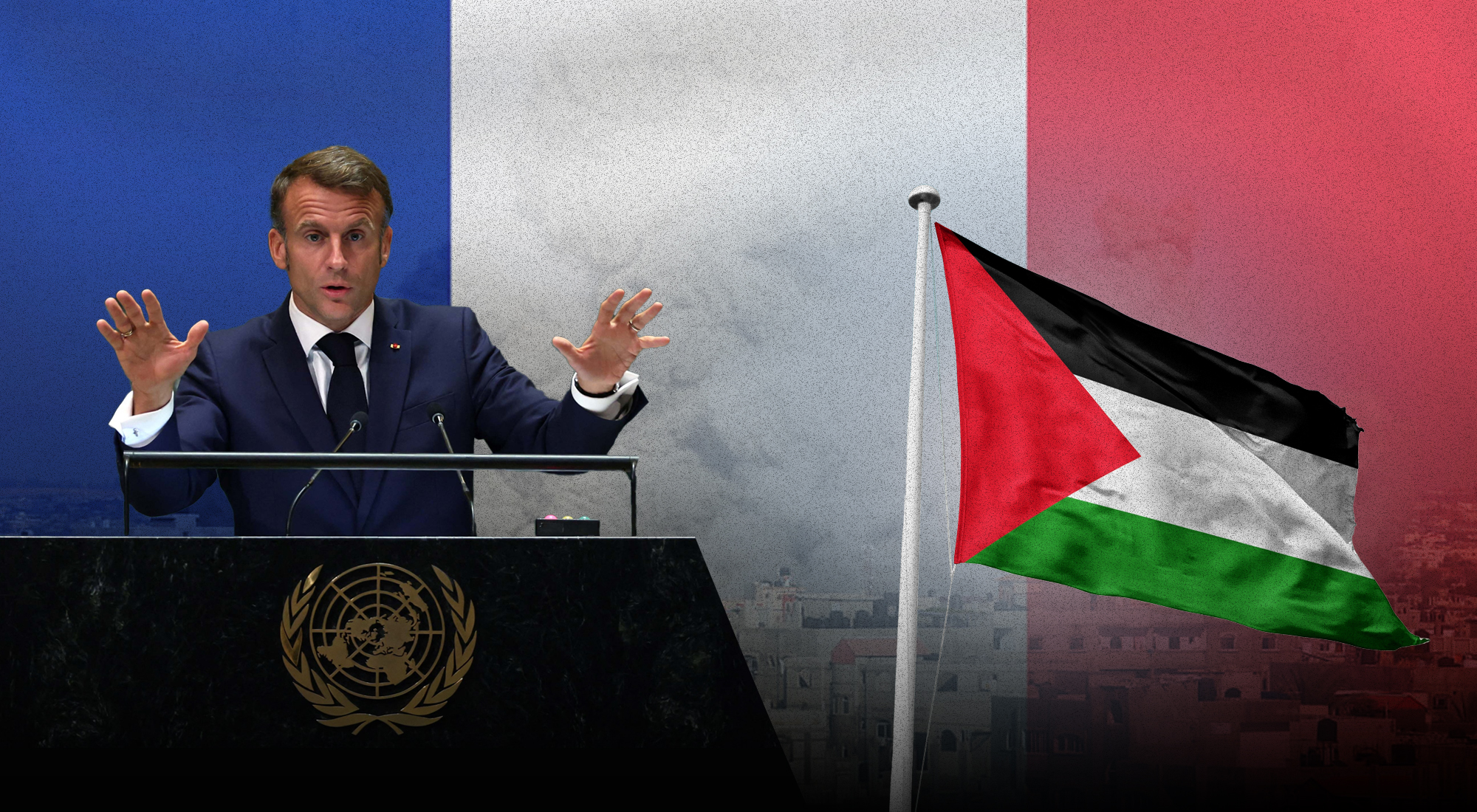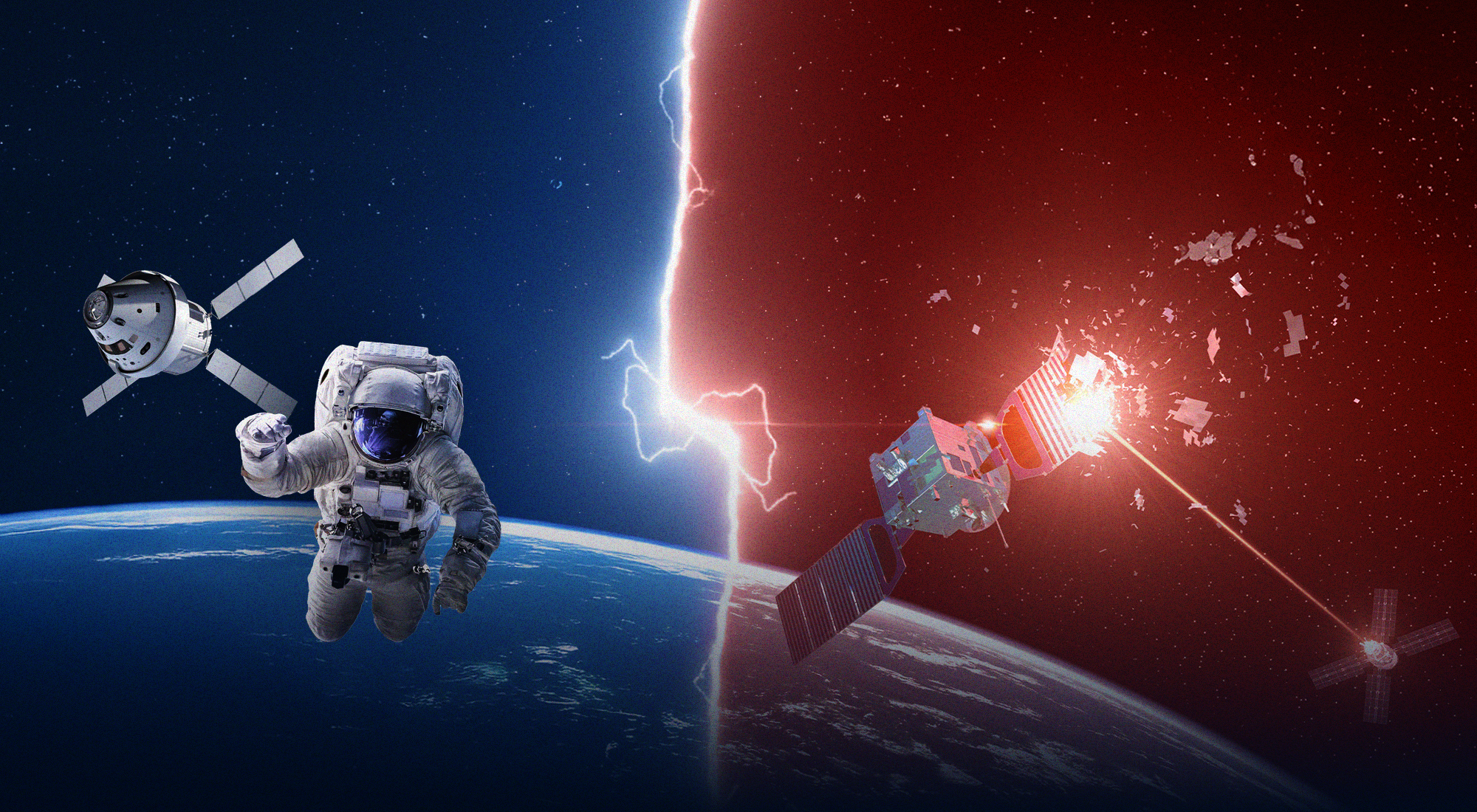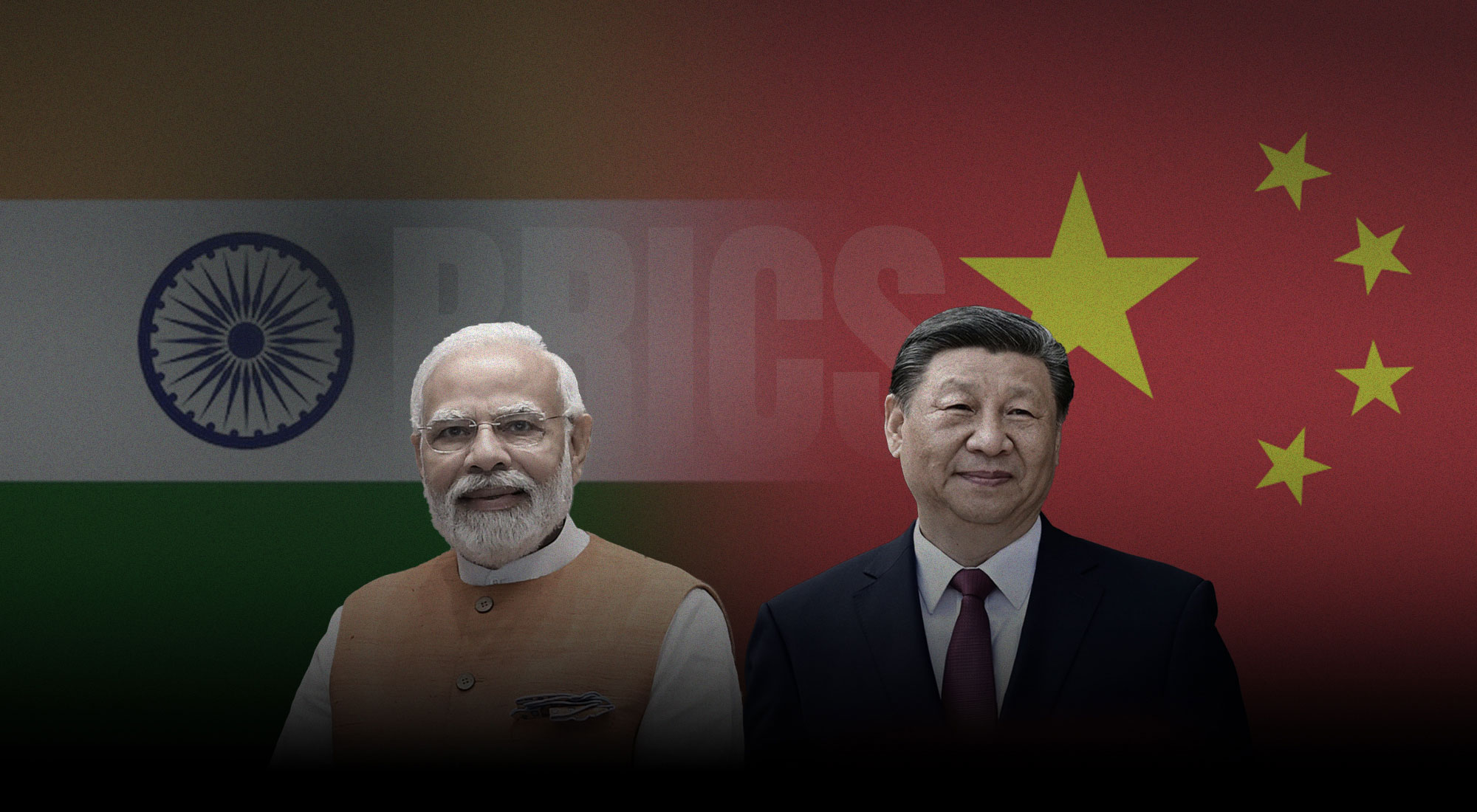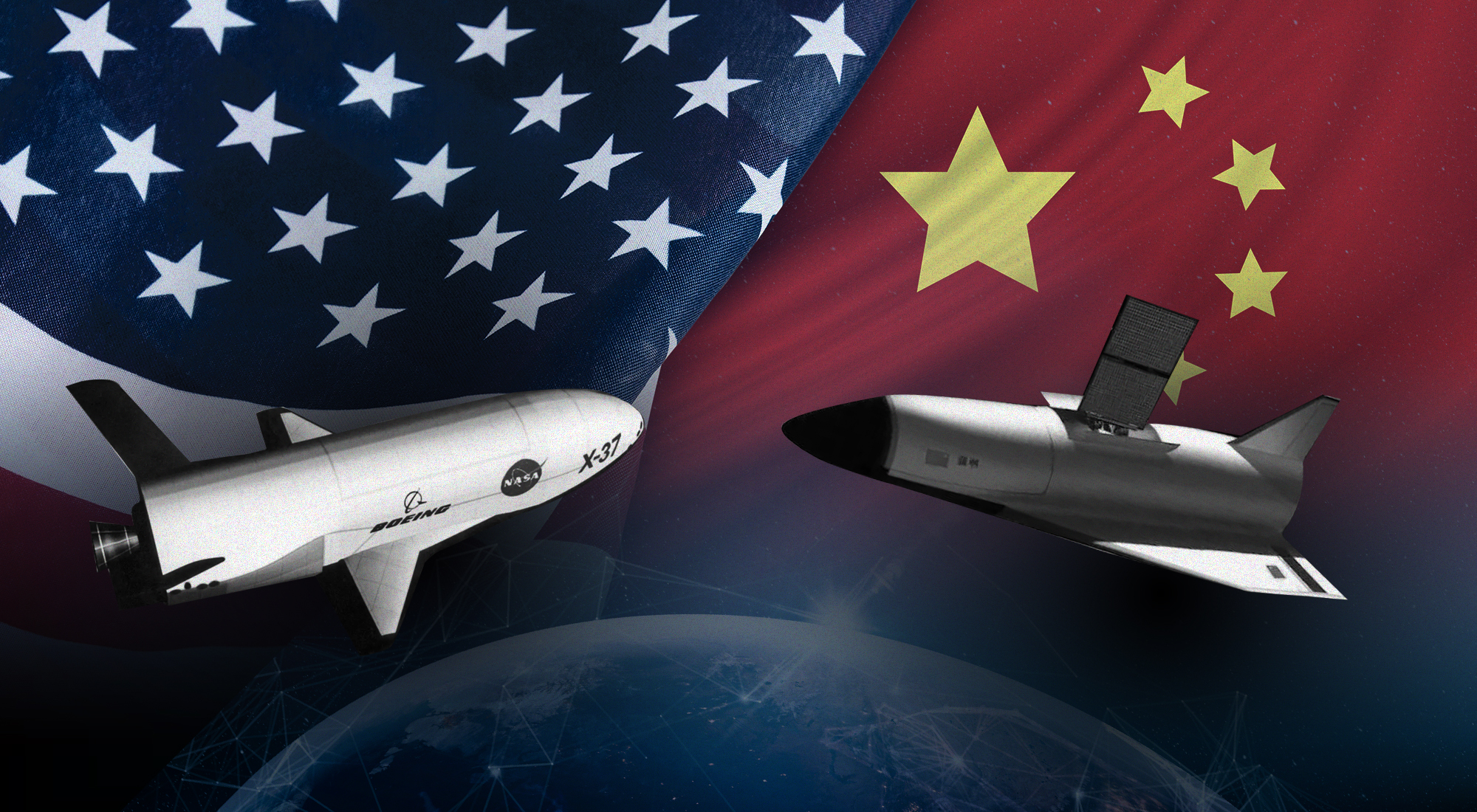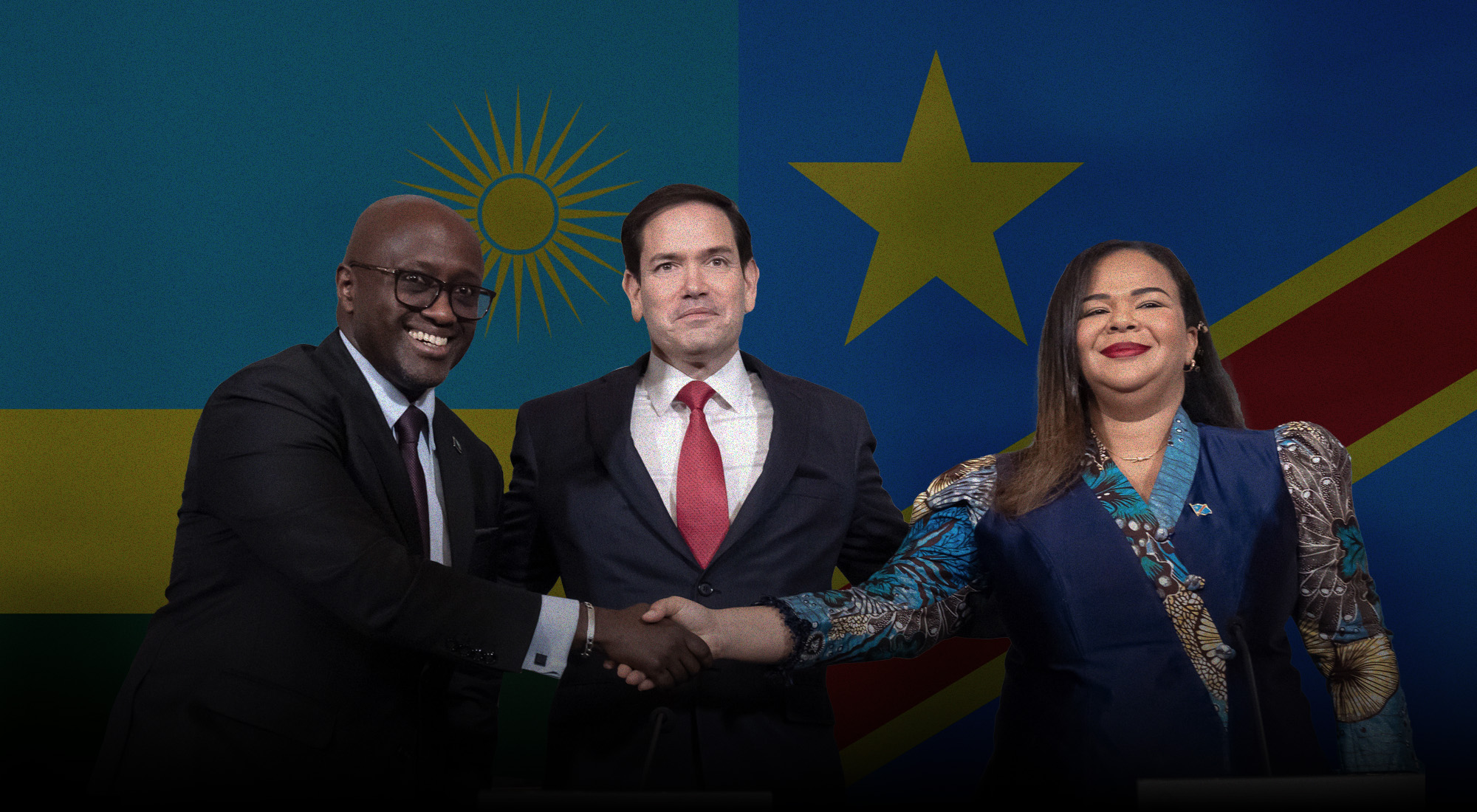The question of Palestine has resurfaced at the center of international diplomacy after decades of stalled negotiations. A renewed attempt at the two-state solution has been brought to light by the July 2025 high-level UN conference, hosted by France and Saudi Arabia. This collaboration produced a seven-page declaration and illustrated how Western and Arab actors can partner to influence global consensus. It included 160 member states and brought attention to the growing demand for Palestinian recognition as an independent state. It was supported by two powerful international organizations, the European Union and the Arab League, which highlights its legitimacy and widespread acceptance in the Arab and Western worlds. Despite persistent resistance from Israel and its close ally, the U.S., momentum is growing, with over 145 nations having already extended recognition and new commitments from G7 members like Canada, France and the UK. The unlikely partnership between France and Saudi Arabia illustrates a joint leadership vision, shared strategic interests and determination in the global discourse surrounding Middle East peace. More importantly, this marks a shift in the dialogue of Palestinian statehood: it is no longer limited to the Arab world but is becoming increasingly supported by influential Western countries.
This study aims to analyze the evolving dimensions of the France and Saudi partnership in the context of Palestinian statehood, emphasizing how this alliance transformed global diplomacy. It traces their relationship through historical ties as a foundation of their current alliance, analyzes France’s recognition of Palestine as a turning point in the European political landscape, and evaluates the July UN conference co-chaired by both countries. It also explains the conference’s outcomes, particularly the New York Declaration, evaluates global responses and assesses how it might affect peace in the Middle East.
Historical Ties
French diplomatic ties with Saudi Arabia date back to the first consulate France established in Jeddah in the middle of the nineteenth century, long before the Kingdom of Saudi Arabia was formally established.[1] It signaled an early understanding of the Arabian Peninsula’s strategic and commercial potential for France. By 1926, France became one of the first countries to officially recognize the Kingdom of Hejaz and Nejd, a precursor to the unified Kingdom of Saudi Arabia; this formed full diplomatic relations between them.[2] Trust was established over decades, when King Faisal met General de Gaulle, which brought personal diplomacy into the relationship.[3] The bond strengthened for arms and defense cooperation when France assisted Saudi defense troops in retaking control of Makkah’s Grand Mosque during its 1979 seizure.[4] One example of military cooperation was the security agreement that strengthened defense training pacts; it involved the construction of French naval ships for Saudi Arabia, known as the Al Madinah-class frigates.[5] More recently, Saudi Arabia has been diversifying its defense relationship and steering more toward France as they share interests in regional stability, security, and economic growth. Under Francois Hollande’s presidency, a $12 billion arms package deal was agreed upon.[6] It not only showed the willingness of large-scale cooperation with Saudi Arabia but also set a precedent for current political alignment. The launch of the Saudi-French Strategic Partnership Council in 2018 formalized cooperation beyond defense, expanding into energy transition, culture, and artificial intelligence.[7] This shift from informal transactions to a formal framework paved the way for future collaboration. France has a distinct position among Western partners thanks to the culturally significant role that the French agency Afalula played in the transformation of tourism initiatives like Al-Ula.[8]
These historical ties collectively explain why the two nations are currently aligned regarding some of the most important diplomatic challenges facing the Middle East, such as the Palestine issue.
France’s Recognition of Palestine
After decades of erratic decisions concerning the recognition of Palestine, President Emmanuel Macron announced France’s recognition of the Palestinian state at the UN General Assembly in New York on 22 September 2025, during a follow-up conference co-hosted with Saudi Arabia. Framing the decision as part of France’s long-standing commitment to a just and lasting peace in the Middle East.[9] Today, over 150 of the 193 members of the UN recognize Palestinian statehood, but France will be the first Western member of the UN Security Council and the first G7 nation to follow suit.[10] This came alongside similar announcements by Belgium, Luxembourg, Malta, Monaco and Andorra, marking the first coordinated wave of recognition by Western European states. This shift represents a notable departure from France’s previous stance after months of carefully balancing its decision following October 2023. It became evident during Macron’s return from Egypt in April when he declared that France intended to recognize the State of Palestine, stating also that conditions for recognition are the demilitarization of Hamas, the reform of the Palestinian Authority, and the release of Israeli hostages.[11] Macron attached recognition to conditions, stating that unless a peace agreement is reached in Gaza and progress is made on issues like hostage release, Hamas disarmament, and reforms to the Palestinian Authority, France will not open a full embassy or exchange ambassadors.[12] This highlights France’s attempt to reposition itself as a mediator in the Middle East and allows him to frame France as a leader within the EU on this divisive issue. Although critics point out that none of these conditions have been met, Macron moved forward with recognition regardless.[13] This effectively separates the principle of recognition from the practical challenges of peace negotiations. It demonstrates how French diplomacy has been reoriented from a conditional, security-first framework to a political gesture in which France continues to actively shape Middle East peace efforts despite the reality on the ground. As nations continue to rely on military force to impose their will on others, such as Russia in Ukraine and the United States and Israel with their recent attacks on Iran,[14] France is advocating for diplomacy and recognition of statehood rather than warfare to achieve peace. Further, this is also a very bold move for President Macron as France hosts Europe’s largest Jewish and Muslim populations, so this step could create significant domestic implications where public opinion is already divided on the conflict.[15] Even if this decision does not impact Palestine directly at first, it evidently carried weight by encouraging other leaders to reconsider their stance, as proven by the UK, Canada’s and Australia’s announcement that they have formally recognized Palestine under certain conditions and reasons.[16] France’s recognition has already triggered ripple effects, reshaping the debate regardless of the motives behind it by normalizing recognition as a mainstream policy stance.
Saudi-French UN Conference
With Saudi Arabia and France serving as co-chairs of the two-state solution UN conference in New York from 28 to 30 July, the international community anticipated a revitalized political will to put an end to decades of violence and move toward sustainable peace.[17] The conference took place in the midst of the worsening humanitarian conditions in Gaza. It was positioned as a direct response to the crisis and at a moment when the possibility of a Palestinian state has never been so threatened or necessary. From the Saudi Arabian standpoint, the recognition of Palestine was framed as not merely symbolic; it is essential to achieving lasting regional peace and stability. The kingdom “spares no effort” to support international, diplomatic, and political efforts to carry out the two-state solution rooted in international legitimacy.[18] By co-chairing the conference with France, they established themselves as a key facilitator of international agreement, indicating their desire to shape not only Arab but also global policy on the topic. Leading up to the summit, Saudi officials emphasized that resolving the Palestinian issue is the foundation of a new regional order founded on mutual recognition and tolerance. This narrative also fits with its larger strategic goal of becoming a stabilizing force that can balance between its role as an Arab leader, its changing relationships with international powers, and its cautious normalization process with Israel.
The conference brought together foreign ministers and diplomats from dozens of nations to expand on the work of several working groups, concentrating on different aspects of security, humanitarian aid, and post-war reconstruction.[19] The conference centered around four key themes and objectives to remove barriers that are halting the establishment of a Palestinian state. The first was dedicated to the recognition of Palestine. France, Saudi Arabia and their partners sought to gain the support of other countries to formally recognize Palestinian statehood. Some argued that the recognition is vital to assist in countering radical groups like Hamas and bolster moderate voices, particularly the Palestinian Authority. But this push for recognition foreshadowed the breakthrough at the UN General Assembly in September, where France and a group of G7 and EU states formally recognized Palestine, turning the conference’s aspirations into reality.[20] The second theme was regional integration and normalization. Arab and Muslim nations were encouraged to reaffirm openness to normalization, though no new agreements were expected.[21] However, this would only happen if there is real progress achieved toward Palestinian statehood. The idea of full diplomatic, economic and security integration is achievable, but only if peace is pursued. Reforming Palestinian governance was the third area of focus. In a letter to the conference organizers, President Mahmoud Abbas reportedly promised several significant measures, including a pledge to disarm Hamas, support for the release of hostages, and a public denunciation of the 7 October attacks. He also pledged to consider reforms in education and welfare payments, including changes to the controversial stipend system.[22] Most importantly, Abbas promised to hold elections within a year and signaled readiness to meet Israeli demands for stronger security guarantees. Disarmament was another core focus of this conference, as it would secure a lasting peace. It underlined that Hamas must not play a part in the future Palestinian state, a stance many countries share.
The Outcome
Building on these key objectives, the conference resulted in the adoption of the New York Declaration, issued by the French and Saudi foreign ministers and endorsed by the European Union and the Arab League.[23] It is a seven-page statement, which aimed to turn general diplomatic goals into a well-organized roadmap. It was sent to all 193 UN members, and by mid-September, the UN General Assembly overwhelmingly endorsed it, giving it formal legitimacy on the international stage.[24]
The first priority is an immediate ceasefire to protect civilians and lay the foundation for statehood, as well as the establishment of a transitional administrative committee under the Palestinian Authority and the deployment of a temporary UN stabilization mission.[25] A stronger language has been used in this declaration compared to previous initiatives, such as the 22 members of the Arab League’s condemnation of Hamas’s 7 October attacks and relinquishing its rule in Gaza.[26] The way in which France raised the bar for ambition and made sure the conference resulted in more than just symbolic acts is significant. It gave Palestinians political encouragement in their ongoing struggle for statehood while also paving the way for Western nations like Canada, Britain, Australia and many more, a chance to go further with their formal recognition.[27] President Mahmoud Abbas responded by calling the recognitions historic and stating that the PA was prepared to take on full governance duties; this reinforces the Authority’s legitimacy in the face of international actors.
In this way, the declaration presents normalization with Israel and the recognition of Palestine as linked goals, connecting Palestinian independence with greater regional integration. While it’s unclear if these promises can be carried out, the declaration marks a unique instance of global agreement that combines renewed support of the two-state solution with security assurances for both sides. However, the initiative co-chaired by France and Saudi Arabia delivered such a tangible outcome and gave the international community the push it had been lacking. The New York Declaration serves as a demonstration of how cross-regional partnerships can recalibrate international diplomacy and move cases from rhetoric to reality.
International Reactions and Challenges
Significant differences and cautious optimism were evident in the international reaction to France’s recognition of Palestine and the UN conference hosted by France and Saudi Arabia. Some states condemned the initiative as foolish and dangerous, while others welcomed it as a long-overdue step toward justice. The conflicting responses show the dual realities: on the one side, a growing coalition in favor of Palestinian statehood; on the other, staunch opposition from powerful individuals as well as persistent skepticism within this diplomatic labyrinth about whether recognition is possible beyond symbolism. Countries like Israel and the U.S. condemned this motion, framing it as rewarding terrorism. Prime Minister Benjamin Netanyahu warned that it would create “a launchpad to annihilate Israel” rather than creating peace. This stems from a fear of a radical Islamist Hamas-run state on its borders.[28] They also criticized the conference, arguing that it failed to promote a real solution and instead deepens false illusions, such as the release of hostages and Hamas’s control of Gaza.[29] Other concerns include creating another Iranian proxy, which would be a national security threat to Israel.[30] It is a persistent fear that an unmonitored Palestinian state might fall under Iranian influence like Hezbollah in Lebanon. However, the New York Declaration does explicitly state that Hamas should release hostages and end its control of Gaza, which undermines Israel’s claim and demonstrates that they are a political tactic to maintain opposition to statehood rather than an actual security risk. The overall U.S. impression of this conference is negative, as President Donald Trump dismissed it as irrelevant, and the UN delegation was not present.[31]
However, a Reuters/Ipsos poll shows 58% of Americans now support the recognition of Palestine, and 59% believe Israel’s military in Gaza is excessive.[32] Even when officials refuse to recognize Palestine, the growing public support in the United States may weaken Israel’s reliance on unconditional diplomatic cover from the U.S. But amid these developments, President Trump still refuses recognition, which was reaffirmed at the UNGA.[33] This coincides with Gaza’s worsening hunger crisis, creating pressure for him to move beyond symbolic rejection. He could use this moment to act more decisively, whether by expanding humanitarian assistance, engaging in diplomacy with Israel, or coordinating with Arab partners.[34] It is clear that recognition is fragmenting Western unity. With France, the UK, Canada, Belgium, Luxembourg and many more moving toward recognition, leaving the U.S., Israel and others behind.[35] This issue is not limited to symbolic gestures, as seen by the growing division that is starting to redraw alliances, leaving Washington and Tel Aviv more reliant on one another as their isolation becomes more visible.[36] Additionally, this means that the U.S. will be the only permanent member of the UN Security Council rejecting recognition. Even though this has yet to alter the situation on the ground, it creates a big shift in the balance of power in high-level diplomatic conversations.[37]
Looking Forward
France’s formal recognition of Palestine is not changing anything materially for life under occupation. As it is not a binding legal agreement, Palestinian sovereignty has not shifted, nor have the sanctions, checkpoints and civilian protection.[38] However, the action represents a progression of France’s long balancing act between principle and pragmatism. It has often advocated for Palestinian statehood but preserved connections with Israel in the defense and technology industries.[39] Evidently, the balancing act has reached its limit, as seen in the shift from rhetoric to official recognition, indicating that ambiguity is no longer useful for France. It shifted the debate from the margins to the center of European policymaking, normalizing recognition as a mainstream stance within the EU. Together with Saudi Arabia’s leadership, this move represents a rebalancing of diplomacy, with European strategic weight and Arab legitimacy coming together to provide an alternative to the U.S.-Israeli framework. The significance lies in the apparent transformation of the diplomatic landscape, where states have been reevaluating their stance on this issue.
The July 2025 UN conference, followed by the September UNGA meetings, highlighted an exceptional moment of global unity, but the outcomes must be evaluated based on current realities. The first scenario is the impactful wave of Western recognition led by France, which is very significant as it is the first Western UN Security Council and G7 member to officially take this step. This ripple effect will continue to expand, embedding recognition as the new mainstream position in Europe and beyond, changing the Western view of statehood. The second scenario is that the growing international pressure could push Washington to reconsider its role. While President Trump has reaffirmed his opposition at the UNGA, the widening gap between the U.S allies and domestic sentiment risks leaving Washington increasingly isolated. This could push the U.S. to become more open to discussions with its Arab partners, or also open doors for negotiation with Israel, to at least ease humanitarian restrictions. This would preserve its influence without reversing its official stance. But as Netanyahu’s government firmly rejects the two-state solution, this could be harder to achieve and could be considered a threat. The final scenario is that ground realities remain static, as there is still a lack of a unified Palestinian leadership and institutional weakness. The recognition may help in the legal and humanitarian context, but it won’t immediately halt the occupation.
In conclusion, the wave of recognition and the momentum it generated reflect more than symbolic gestures. They signal a turning point in how the Palestinian question is addressed on the world stage. The Franco-Saudi initiative, endorsed by 142 states at the United Nations on 12 September, has moved recognition from rhetoric to coordinated international action.[40] Even if recognition does not immediately change the situation, it is not about drawing lines on a map but about affirming the Palestinian right to statehood.
Crucially, the collaboration between France and Saudi Arabia has created a greater force behind the Palestinian cause, one that can no longer be dismissed as isolated or symbolic. By combining European strategic weight with Arab legitimacy, this partnership has transformed recognition into a strong collective stance, raising the likelihood of more serious and achievable consequences for Israel, from intensified diplomatic isolation to potential sanctions. The true test ahead lies in whether this momentum can translate into Palestinian unity and governance. Yet, regardless of the obstacles, the Franco-Saudi partnership has already reshaped the diplomatic landscape by showing how cross-regional alliances can break long-standing stalemates and open a new chapter in the pursuit of peace.
[1] Wikipedia Contributors, “France,” Wikipedia, Wikimedia Foundation, March 15, 2019.
[2] Jonathan Gornall, “A History of Saudi-French Relations,” Arab News, July 14, 2020.
[3] Zeina Zbibo, “How Saudi Arabia and France Aligned National Visions for Prosperity at Riyadh Investment Forum,” Arab News, December 3, 2024.
[4] Wikipedia Contributors, “France,” Wikipedia, Wikimedia Foundation, March 15, 2019.
[5] Wikipedia Contributors, “Al Madinah-Class Frigate,” Wikipedia, Wikimedia Foundation, September 21, 2024.
[6] Jonathan Gornall, “A History of Saudi-French Relations.”
[7] “Saudi-French Joint Statement Issued,” Saudi Press Agency, April 11, 2018.
[8] “Afalula, the French Agency Developing Saudi Tourism, Is Subtly Evolving,” Le Monde, October 26, 2024.
[9] “Macron Says France Will Recognise Palestinian State in September,” Al Jazeera, July 24, 2025.
[10] Sophian Aubin, “‘Enough Was Enough’: Why France Is Now Taking a Stand on Palestinian Statehood,” France 24, July 29, 2025.
[11] Ibid.
[12] Fiona Nimoni, “France Formally Recognises Palestinian State,” BBC News, September 22, 2025.
[13] Ibid.
[14] John Leicester, “How France’s Recognition of a Palestinian State Could Shift Diplomacy,” AP News, July 25, 2025.
[15] Ibid.
[16] Patrick Wintour, “UK, Canada and Australia Announce Formal Recognition of Palestine, with Wave of Israel’s Allies to Follow,” The Guardian, Guardian News and Media, 21 Sept. 2025.
[17] Ephrem Kossaify, “Two-State Solution Conference Poised to Convene at UN as Famine Spreads in Gaza,” Arab News, July 27, 2025.
[18] Ibid.
[19] “UN Overwhelmingly Endorses Two-State Solution Declaration That Condemns Hamas,” Reuters, September 13, 2025.
[20] Catarina Demony and Bhargav Acharya, “UK, Australia and Canada Recognise Palestinian State, Israel Condemns Decision,” Reuters, September 21, 2025.
[21] Michelle Nichols, “Saudi Arabia, France Seek Support for Declaration on Two-State Solution between Israel, Palestinians,” Reuters, July 29, 2025.
[22] “France Says It Obtains Palestinian Reform Pledge ahead of Conference,” Reuters, June 10, 2025.
[23] Michelle Nichols, “Saudi Arabia, France Seek Support for Declaration on Two-State Solution between Israel, Palestinians,” Reuters, July 29, 2025.
[24] Avraham Spraragen, “What You Need to Know: July 2025 United Nations Conference on Two-State Solution,” J Street, August 8, 2025.
[25] Ministère de l’Europe et des affaires étrangères, “United Nations High-Level International Conference – New York Declaration on the Peaceful Settlement of the Question of Palestine and the Implementation of the Two-State Solution (29 July 2025),” France Diplomacy – Ministry for Europe and Foreign Affairs, 2025.
[26] Edith M. Lederer, “Conference on ‘Two-State Solution’ to Israel-Palestinian Conflict Lays Groundwork,” AP News, August 4, 2025.
[27] “France among Six More Countries to Formally Recognise Palestinian Statehood,” Al Jazeera, September 22, 2025.
[28] Andrew Roth, “Saudi Arabia and France to lead UN push for recognising Palestinian statehood,” The Guardian, July 28, 2025, https://www.theguardian.com/world/2025/jul/28/saudi-arabia-france-un-palestine-statehood
[29] Avraham Spraragen, “What You Need to Know: July 2025 United Nations Conference on Two-State Solution.”
[30] John Irish, “French Plan to Recognise Palestinian State Draws Fire from Israel, US,” Reuters, July 25, 2025,
[31] John Leicester, “How France’s Recognition of a Palestinian State Could Shift Diplomacy.”
[32] Patricia Zengerle and Jason Lange, “Most Americans Believe Countries Should Recognize Palestinian State, Reuters/Ipsos Poll Finds,” Reuters, August 20, 2025.
[33] Michelle Nichols, Gram Slattery, and Dawoud Abu Alkas, “At the UN, Trump Condemns Moves to Recognise Palestinian State,” Reuters, September 23, 2025.
[34] Atlantic Council experts, “Diplomatic Momentum for Recognizing a State of Palestine Is Growing. Here’s What to Know,” Atlantic Council, August 1, 2025.
[35] Ibid.
[36] Ray Bechara, “France’s Recognition of Palestine: Diplomatic Turning Point or Empty Gesture?” Beirut Today, July 29, 2025.
[37] John Leicester, “How France’s Recognition of a Palestinian State Could Shift Diplomacy.”
[38] Ray Bechara, “France’s Recognition of Palestine: Diplomatic Turning Point or Empty Gesture?
[39] Ibid.
[40] “UN Overwhelmingly Endorses Two-State Solution Declaration That Condemns Hamas,” Reuters, September 13, 2025.



